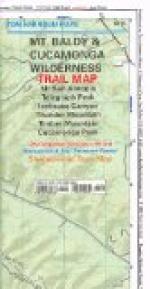He pointed to two slim birches which lay prone with their tops in the water, and to a third, the trunk of which was partly sawn through in more than one place. The ground was strewn with little clippings of timber, bearing the saw-marks of the beavers’ teeth. The boys gathered them up as curiosities.
“Oh, the skilful little animals can beat this work by long odds!” exclaimed Doc. “These trunks only measure from eight to twelve inches in circumference. I’ve seen a tree fully two feet round which was felled by them. Say, Joe! don’t you think we’d better camp to-night somewhere on the brulee?”
“Just what I’m planning, Doc,” answered Joe. “We must be pretty near it now.”
A few minutes afterwards the party filed out of the dense woods, passed through a grove of young spruces, forded a brook which emptied itself into the stream they were following, and came upon a scene blasted, barren, and unutterably dreary.
The band of boys, who, in spite of swamps and jungles, had learned to love the forest dearly, for its many beauties, and for the wild offspring with which it teemed, sorrowfully gasped, as if they saw the skeleton of a friend.
CHAPTER XII.
“Go it, old Bruin!”
Before them lay a ruined tract of country, extending northward farther than eye could reach. It is called by Maine woodsmen a brulee, name borrowed from their French-Canadian neighbors, who dwell across the boundary line which separates the Dominion from the United States.
The word signifies “burnt tract;” but it gives a feeble idea of the fire-smitten, blackened region on which the lads looked.
The forest until now had been a wilderness truly, but a wilderness where every kind and size of growth, from the giant pine to the creeping wintergreen and shaded mosses, mingled in beautiful confusion. Here it became a desert. For the terrible forest fires, the woodsman’s tragic enemy, had swept over it not long before, devastating an area of many square miles. Millions of dollars worth of valuable timber had been reduced to rotting embers. Storm-defying pines had crashed to the earth, and were overridden by the flames in their wild rush onward. Sometimes only a smutty stump showed where they had stood; sometimes, robbed of life and every limb, portions of the fire-eaten trunks still remained erect,—bare, blackened poles. All smaller growth, and even the surface of the ground, parched by summer heats, had burned like tinder. Rocks and stones were baked and crumbling.
“Boys, that’s the most mournful sight a woodsman can see,” said Doc, looking away over the wrecked region, touched with golden lights from an October sunset. “It makes one who loves the woods feel as if he had lost a living friend.”
“Well, ‘tain’t no manner o’ use to fret over it,” declared Joe energetically. “Nature don’t waste time in fretting, you bet! She starts in and tries to cover the stripped ground, as if she was sort of ashamed to have it seen.”




